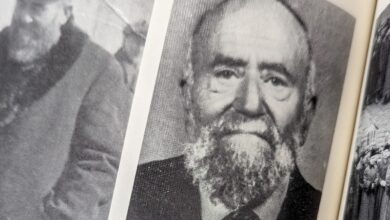“Christian Taliban” remark sparks war of words among Republican leaders
Two Republican representatives are sparring over the role of faith in politics. Rep. Adam Kinzinger of Illinois is equating politically active Christians as a “Christian Taliban” in his criticisms of Rep. Lauren Boebert of Colorado and her recent remarks at a church. She is one of 15 pro-life Republican women elected to the House in 2020.
Boebert said Christians are supposed to give input and direct the government, and not the other way around. “The government is not supposed to direct the church,” she stated. “That is not how our founding fathers intended it, and I’m tired of this separation of church and state junk that’s not in the Constitution. It was in a stinking letter, and it means nothing like what they say it does.”
Kinzinger took to social media to denounce Boebert’s comments, accusing her of promoting a Christianized version of the Taliban, the terrorist organization currently governing Afghanistan and responsible for abetting the terrorists who planned 9/11. “There is no difference between this and the Taliban,” he tweeted. “We must be opposed to the Christian Taliban. I say this as a Christian.”
In a follow-up tweet, Kinzinger suggested that extremism in Christianity should be discouraged across the United States, similar to extremism in other religions, such as Islam.
Historians and conservative media outlets were quick to correct Kinzinger’s American history. The Washington Times said Kinzinger’s interpretation of history is a “manufactured lie.”
CHUMLEY Adam Kinzinger stupidly calls out ‘Christian Taliban’ – https://t.co/P5q4rAw5NR – @washtimes This is a manufactured lie from the left and now, RINO-ey Kinzinger, that ultimately, egregiously and stupidly skews America’s history.
— The Washington Times (@WashTimes) June 30, 2022
Kinzinger recently labeled the Wyoming GOP as “armpit farters” for supporting a primary challenge to Rep. Liz Cheney. Kinzinger and Cheney were hand-picked by Democrats to serve on the January 6 House committee. Republicans see there role as fraudulent and politically motivated as there has been no cross-examination of witnesses during the proceedings.
Conservative radio host Larry O’Connor responded to Kinzinger’s comments by noting that he previously was labeled a member of the “Christian Taliban” before being elected to Congress in 2010. O’Connor also said that the term “Christian Taliban” often is used to denigrate those who promote conservative Christian policies.
“All of us at Breitbart helped you win in 2010 when the protesters in the streets were calling YOU Christian Taliban and Nazi,” he said. “Remember all the posters of you and Glenn Beck and Sarah Palin with swastikas? You’ve become the very people we fought against to help you get elected.”
Although Kinzinger acknowledged the criticism he faced at that time, he contended that things are different now.
“You are incorrect, Larry,” he said. “Yes, I was called a Nazi, and thank you for confirming that I wasn’t. But in 2010, nobody could imagine the church would be abused to promote a man with traits we should abhor. So, it’s VERY different now.”
Kinzinger serves on the House select committee to investigate the attack on the U.S. Capitol on Jan. 6, 2021. He was one of 10 Republicans who voted to impeach former President Donald Trump following the attack. He is not seeking reelection.
Kinzinger has been redistricted out of his district by Democrats and Cheney currently trails her opponent by 30 points.
As a student of real history free of leftist revisions, Jim Tarr, pastor of Cornerstone Christian Center in Colorado released a statement setting Kinzinger and the record straight: “Most people believe that the wall of separation is in the Constitution. It is not. The man who wrote the phrase, Thomas Jefferson, wasn’t even a signer of the Constitution. This phrase, ‘wall of separation between the church and state,’ was written by Jefferson in correspondence between himself and the Danbury Baptist Association.
“Thomas Jefferson’s point was that the church would always be protected from the state in the United States of America,” Tarr adds. “There is no legitimate interpretation in the correspondence of the Danbury letter that Christians are not allowed to participate or influence government like any other citizen. The wall of separation was to protect the church from the state—very important to our Founders—not the state from influence of the church.”
–Dwight Widaman | Metro Voice








